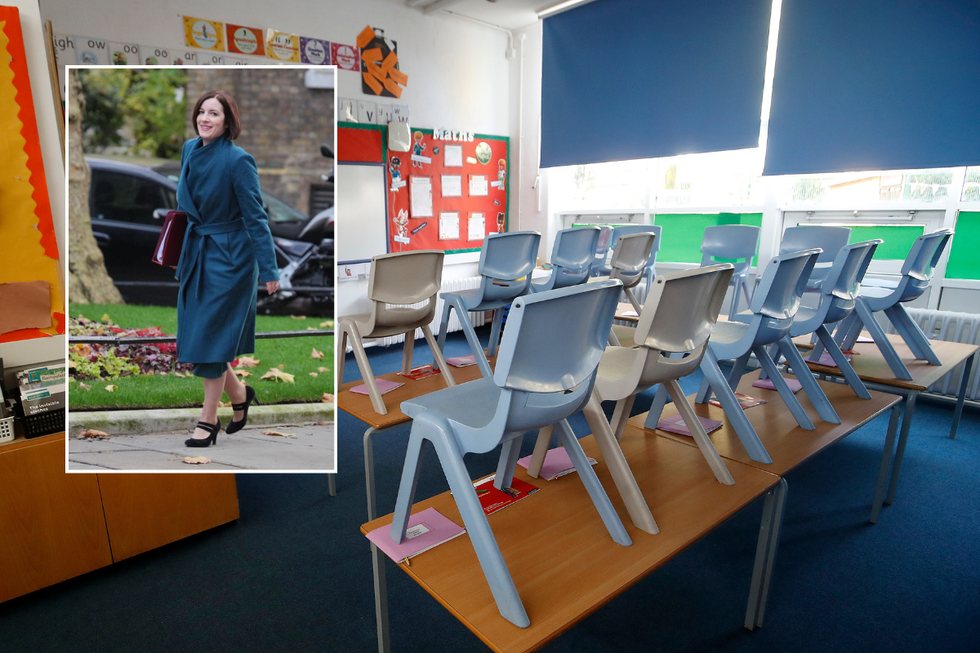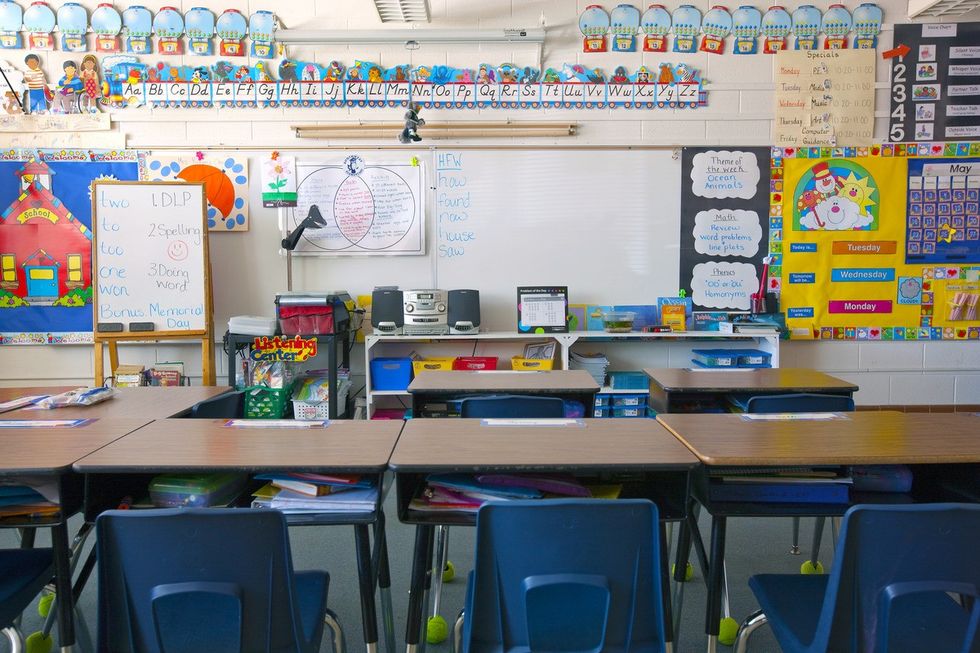George Bunn
Guest Reporter
Labour's Education Secretary has announced that teachers should be permitted to work from home when completing tasks like marking and lesson planning, in a bid to tackle the growing retention crisis in schools.
Bridget Phillipson told the Observer it was vital that state schools offer more flexible working arrangements away from the classroom, following successful examples already implemented in academy schools.
The move comes as the Department for Education faces mounting pressure over high numbers of teachers, particularly young female staff, leaving the profession.
Under the new proposals, teachers would be allowed to complete marking, lesson planning and pupil assessments from home, while maintaining essential classroom contact time with students.

"That's what this Government will do, by taking innovative examples from academies in offering more flexibility without reducing the teaching time with pupils," Phillipson said.
The Dixons Academies trust, operating schools across Leeds, Bradford, Manchester and Liverpool, has already implemented remote working policies for planning and assessment tasks.
"Both are vital. We need to get both right," a government source told the Observer.
Recent figures show 47 per cent of teachers are considering leaving the state school sector due to lack of flexible working opportunities, up from 34 per cent in 2023.
LATEST DEVELOPMENTS

Women aged 30 to 39 represent the largest group quitting teaching, with over 9,000 full-time female teachers leaving in 2022-23. The latest Department for Education data revealed the teaching workforce grew by only 259 teachers last year, down significantly from 2,844 the previous year.
Daniel Kebede, general secretary of the NEU, called the move "a necessary and welcome step" but stressed it must be coupled with improved pay and reduced workload.
Addressing the education select committee last year, Philip Nye from the Institute for Government highlighted how teaching was traditionally seen as family-friendly due to school holidays.
"But now, perhaps compared to other non-public sector roles, it is not as flexible and family-friendly as it once was," he told MPs.

Dr Luke Sibieta, from the Institute for Fiscal Studies, warned that the rise in private sector home working since the pandemic had impacted teacher recruitment.
"It makes teaching a bit less competitive because it can't really offer that kind of work from home or flexible options," he said.
The new Children's Wellbeing Bill, introduced in the Commons this month, includes provisions for all non-academy schools to have the same flexibility as academies regarding teacher working arrangements.
Headteacher Andrew O'Neill, who transformed recruitment at All Saints Catholic College near Grenfell Tower, has already seen success with flexible working policies.

His innovations included allowing staff to arrive at 10.45 one morning per week. "One teacher told me having a late start was a gamechanger for the end of term when everyone's exhausted," he said.
"In every other profession we are happy for people to regulate themselves. Why does it have to be different for teachers?"
Find Out More...
Bridget Phillipson told the Observer it was vital that state schools offer more flexible working arrangements away from the classroom, following successful examples already implemented in academy schools.
The move comes as the Department for Education faces mounting pressure over high numbers of teachers, particularly young female staff, leaving the profession.
Under the new proposals, teachers would be allowed to complete marking, lesson planning and pupil assessments from home, while maintaining essential classroom contact time with students.

"That's what this Government will do, by taking innovative examples from academies in offering more flexibility without reducing the teaching time with pupils," Phillipson said.
The Dixons Academies trust, operating schools across Leeds, Bradford, Manchester and Liverpool, has already implemented remote working policies for planning and assessment tasks.
"Both are vital. We need to get both right," a government source told the Observer.
Recent figures show 47 per cent of teachers are considering leaving the state school sector due to lack of flexible working opportunities, up from 34 per cent in 2023.
LATEST DEVELOPMENTS
- Turkey farms hit with outbreak of bird flu just days before Christmas
- British schoolgirl killed in horrific snorkelling incident
- Two teenagers who targeted a Jewish community in spate of vile antisemitic attacks sentenced

Women aged 30 to 39 represent the largest group quitting teaching, with over 9,000 full-time female teachers leaving in 2022-23. The latest Department for Education data revealed the teaching workforce grew by only 259 teachers last year, down significantly from 2,844 the previous year.
Daniel Kebede, general secretary of the NEU, called the move "a necessary and welcome step" but stressed it must be coupled with improved pay and reduced workload.
Addressing the education select committee last year, Philip Nye from the Institute for Government highlighted how teaching was traditionally seen as family-friendly due to school holidays.
"But now, perhaps compared to other non-public sector roles, it is not as flexible and family-friendly as it once was," he told MPs.

Dr Luke Sibieta, from the Institute for Fiscal Studies, warned that the rise in private sector home working since the pandemic had impacted teacher recruitment.
"It makes teaching a bit less competitive because it can't really offer that kind of work from home or flexible options," he said.
The new Children's Wellbeing Bill, introduced in the Commons this month, includes provisions for all non-academy schools to have the same flexibility as academies regarding teacher working arrangements.
Headteacher Andrew O'Neill, who transformed recruitment at All Saints Catholic College near Grenfell Tower, has already seen success with flexible working policies.

His innovations included allowing staff to arrive at 10.45 one morning per week. "One teacher told me having a late start was a gamechanger for the end of term when everyone's exhausted," he said.
"In every other profession we are happy for people to regulate themselves. Why does it have to be different for teachers?"
Find Out More...